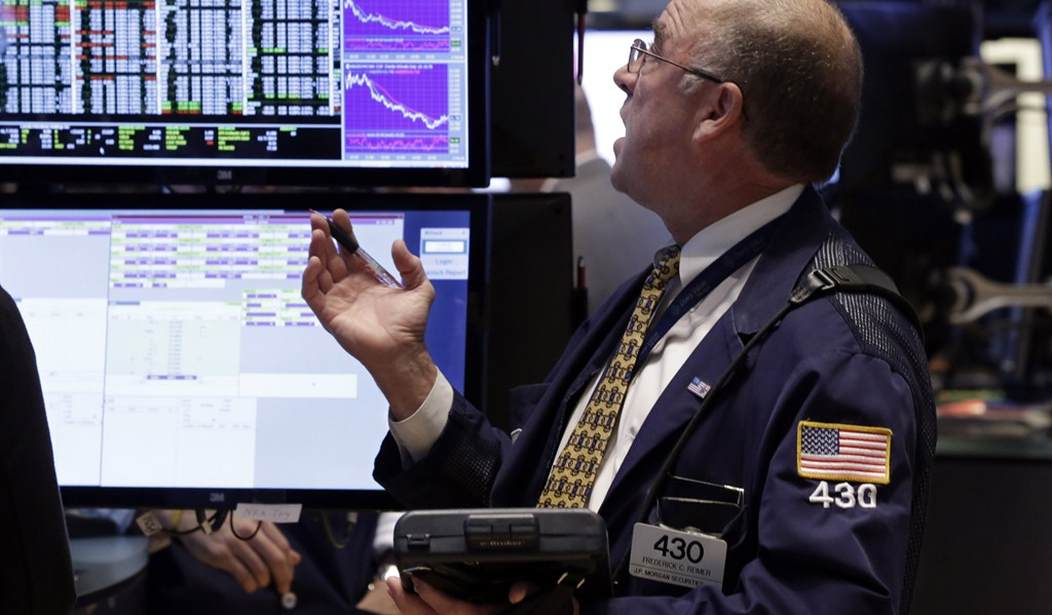The Dow suffers its first six day losing streak of the year as seesaw trading gave way to a late selloff. Once again there was no sense of panic, but the absence of buyers was magnified and selling begat selling. This is a tough stretch for the market, yet it comes at a good time if there is such a thing. Many people are still away enjoying the final days of summer and most of the big scheduled news for the month has been already released. While momentum is critical, so too are expectations.
In some ways investors bracing for the worst is a good thing but right now there is no consensus on what constitutes the "worst thing."
The Fed itself is at a crossroads, as it can't take a victory lap without announcing it's going to wind down its extraordinary accommodation and yet it has to appease Wall Street in the process. That's all a tall order when the original part of the premise is false - all this Fed printing hasn't made a dent on Main Street. Of course the problem is Ben Bernanke has already taken as many victory laps over the recovery as President Obama. Such victory laps have been premature and wasted valuable time in the process. Now the Fed Chairman has to find a way to exit with swagger that says "I'm bad" even if his successor will have orders to keep the machines on.
Stir Crazy
In the meantime the Fed has lost influence over the bond market as long lost vigilantes have returned to exhibit concern and flex muscle. I have no idea where they've been but it's clear they were going a little stir crazy and now want to push back. The explosion in the ten year bond could be a harbinger of higher inflation or increased credit risk or just an adjustment from the flight to safety trade that saw the world pile into US debt during the throes of the crisis and now feel the coast is clear and it's time to move on. This makes the September FOMC decision even more important. If it's only about the economy there will be no tapering, if it's about policy becoming irrelevant then it's time to close up shop.
Wait a Minute...
Minutes of the July 30-31, 2013 meeting were released yesterday, riddled with obvious observations that also seemed to say accommodation continues even though it's not working. It wasn't a mea culpa but sounded like the kind of excuses a con man or desperate child might use: "the dog ate my homework but he promised to do it for me today and I'll bring it in tomorrow."
However, a few participants expressed concern that higher household wealth might not translate into greater consumer spending, cautioning that household income growth remained slow, that households might not treat the additions to wealth arising from recent equity price increases as lasting, or that households' scope to extract housing equity for the purpose of increasing their expenditures was less than in the past.
Upshot: The wealth effect isn't working because Main Street isn't taking the bait. They don't feel comfortable with stock market gains or the rebound in the value of their homes. This week it was revealed refinancing applications crumbled and aren't likely to rebound even with these still historically low rates of interest. Even on the home-buying front first time buyers aren't stepping up and its taking longer to move houses.
With the public not ready to make the leap of faith how can the economy move fast enough to get the Fed to back off with all the gimmicks? This is how the monetary body sees GDP growth over the next couple of years.
Participants generally continued to anticipate that the growth of real GDP would pick up somewhat in the second half of 2013 and strengthen further thereafter. Factors cited as likely to support a pickup in economic activity included highly accommodative monetary policy, improving credit availability, receding effects of fiscal restraint, continued strength in housing and auto sales, and improvements in household and business balance sheets.This statement is nuts! It says the economy will bump along for the rest of the year because of "highly accommodative" monetary policy. Say what??? We bad, indeed! How could Wall Street think the Fed would remove the training wheels when they said it's the main reason the economy is bumping along? Then the Federal Reserve assumes banks will lend, consumers will want to borrow, consumers will forget the Great Recession and run up credit card bills, all the while housing will continue to rebound in the face of rising interest rates.
Then there's the jobs picture which must worry some members of the Fed to the point 7.0% unemployment isn't low enough for an automatic shift in policy. It could be a moot point if this week's Gallup poll on employment proves an accurate harbinger of official jobs data.
Recommended


























Join the conversation as a VIP Member